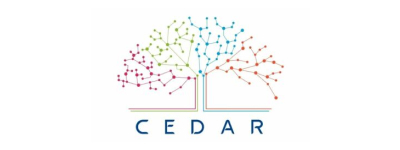
COOPERHATE
Delivering a comprehensive approach to preventing, reporting, investigating and prosecuting hate crime and hate speech-related incidents in Portugal

Continuing Education Against Radicalisation
Timeframe
09/2020 – 08/2023 (36 months)
Get in touch

European-level efforts to prevent radicalisation and violent extremism involve the need to train professionals also in the education sector, especially educators such as university professors, juvenile detention centres educators, as well as associations working with vulnerable youngsters.
Despite numerous recommendations and laws aimed at characterising and banning the extremist discourse that leads to violence, few specifically European tools have been developed to date.
The CEDAR project aims to fill that gap by training and improving the practitioners’ skills in the field of radicalisation and extremism in educational and university settings, by supporting them with the necessary competencies for risk identification and prevention.

Train, within partner universities, a network of trainers who are experts in the prevention of radicalisation and capable of generating a relevant and specialised response in the area of continuing university education.
Define a European training curriculum for the prevention of radicalisation for education professionals (teacher training), security professionals (police, intelligence), social intervention and social assistance professionals.
Build a multilingual online course platform, allowing universities to create an open hybrid training offering on detection, risks and prevention of radicalisation and extremism.
Review of the state of the art and good practices.
Creation of training modules.
Measuring the impact of actions and ethical issues.
Educational needs analysis and content inventory available online.
Design of online courses – Implementation of the training platform.

Delivering a comprehensive approach to preventing, reporting, investigating and prosecuting hate crime and hate speech-related incidents in Portugal

Fostering Digital Democracy and Citizenship in Higher Education

Developing a European framework for disengagement and reintegration of extremist offenders and radicalised individuals in prison

Sentinels of the Future: Together to Eradicate Human Trafficking

Holistic Radicalisation Prevention Initiative (Balkan countries)

Law enforcement and community cooperation and training approach to prevent radicalisation by ensuring refugees’ successful inclusion

Strengthening a comprehensive approach to preventing and counteracting radicalisation based on a universal evidence-based model for evaluation of radicalisation prevention and mitigation

Integrated Community, Probation and Prison Services Radicalisation Prevention Approach

Identifying future capabilities for Community Policing

Multi-Ideological Radicalisation Assessment towards Disengagement

Participatory Approaches to Protecting Places of Worship

Partnership against Radicalisation in Cities

Radicalisation and violent extremism prevention in the community

Radicalisation Prevention in Prisons

Radicalisation Prevention Competences’ Development Programme for Justice Professionals

Communitarian approach for a holistic young refugee long-term integration

Strengthening Judicial expertise and Frontline support to combat Child Trafficking

Safeguarding symbolic places of personal and religious development and freedom in Europe through a multi-stakeholder approach.

Restorative and victim-centred approach to mitigate hate and (violent) extremism

Integrated Exit Programme for Prisons and Probation